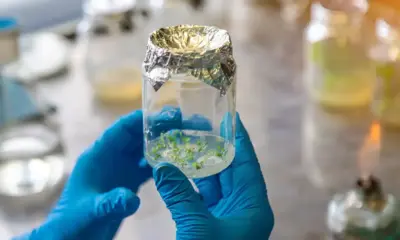Packaging & Processing
Unilever Refines Its Sustainable Packaging Objectives
Pablo Costa, Global Head of Packaging at Unilever, discusses how the company’s sustainability agenda has developed to create a more significant impact.

Unilever has announced updates to its sustainable packaging objectives. Pablo Costa, the Global Head of Packaging at Unilever, elaborates on how the company’s sustainability strategy has evolved and its implications for plastic packaging use.
“Packaging is vital for our business… It’s also central to the experience of our consumers and to delivering exceptional brands,” Costa states. He emphasizes, “But we know that the sourcing, use, and end-of-life of our packaging must be carefully considered and designed to have a positive impact on our planet and society.”
A significant challenge lies in the inadequate infrastructure for plastic recycling and the lack of government regulations, according to Costa. Unilever Refines Its Sustainable Packaging Objectives, providing solutions to these issues. Costa explains the company’s revised sustainable packaging goals, which are outlined below.
Unilever’s New Growth Action Plan
Costa highlights that Unilever has identified plastic as one of its four key sustainability priorities in its Growth Action Plan. The company has already achieved important milestones, including:
- An 18% reduction in virgin plastic use against a 2019 baseline.
- An increase in recycled plastic usage to 22% of its global plastic packaging portfolio, putting Unilever on track to meet its 25% target by 2025.
- Establishing long-term partnerships, including being the first major FMCG to sign the Global Commitment. Unilever also collaborated with the Consumer Goods Forum’s Plastic Waste Coalition of Action to develop the Golden Design Rules for optimal plastic packaging design, production, and recycling.
What’s Next? Unilever’s New Goals
Looking ahead, Costa reveals Unilever’s objectives, which include:
- Aiming to reduce virgin plastic use by 30% by 2026 and by 40% by 2028.
- Ensuring that 100% of its plastic packaging is reusable, recyclable, or compostable by 2030 for rigid plastics and by 2035 for flexible plastics.
Currently, approximately 87% of rigid plastic is designed for recycling. Unilever will now concentrate on addressing the more challenging non-recyclable components, such as caps, aerosol actuators, and bottle pumps.
‘We Can’t Do This Alone’
Costa stresses the necessity for stronger, harmonized regulations to create a “level playing field” for all businesses.
“We’re calling on governments to accelerate the implementation of mandatory and well-designed extended producer responsibility (EPR) schemes, which hold businesses accountable for their packaging decisions,” he states.
Moreover, Costa explains that Unilever is urging governments to establish well-designed reuse policies that are tailored to specific markets and categories.
“What we know for sure is we can’t do this alone,” he emphasizes, highlighting the collaborative efforts required to achieve these sustainable packaging objectives. Unilever Refines Its Sustainable Packaging Objectives and remains committed to driving positive change in the industry.





















